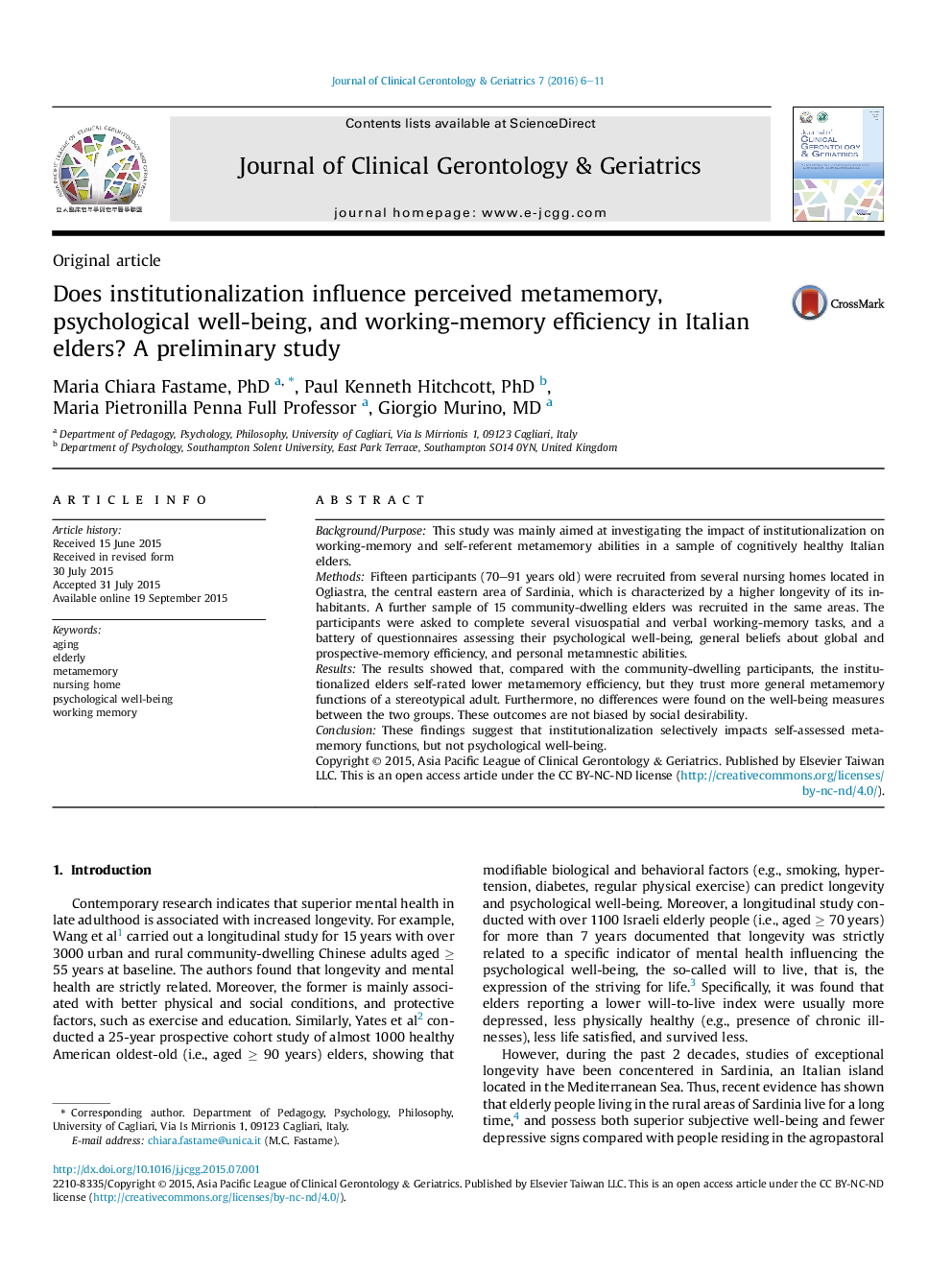| Article ID | Journal | Published Year | Pages | File Type |
|---|---|---|---|---|
| 3325667 | Journal of Clinical Gerontology and Geriatrics | 2016 | 6 Pages |
Background/PurposeThis study was mainly aimed at investigating the impact of institutionalization on working-memory and self-referent metamemory abilities in a sample of cognitively healthy Italian elders.MethodsFifteen participants (70–91 years old) were recruited from several nursing homes located in Ogliastra, the central eastern area of Sardinia, which is characterized by a higher longevity of its inhabitants. A further sample of 15 community-dwelling elders was recruited in the same areas. The participants were asked to complete several visuospatial and verbal working-memory tasks, and a battery of questionnaires assessing their psychological well-being, general beliefs about global and prospective-memory efficiency, and personal metamnestic abilities.ResultsThe results showed that, compared with the community-dwelling participants, the institutionalized elders self-rated lower metamemory efficiency, but they trust more general metamemory functions of a stereotypical adult. Furthermore, no differences were found on the well-being measures between the two groups. These outcomes are not biased by social desirability.ConclusionThese findings suggest that institutionalization selectively impacts self-assessed metamemory functions, but not psychological well-being.
